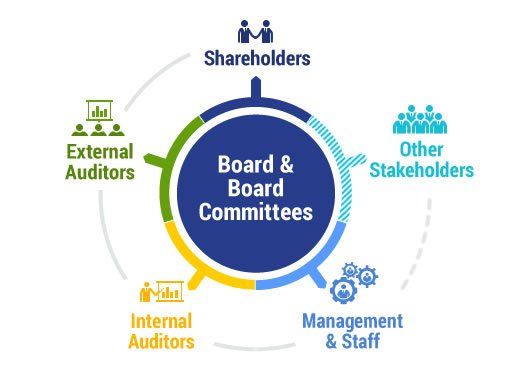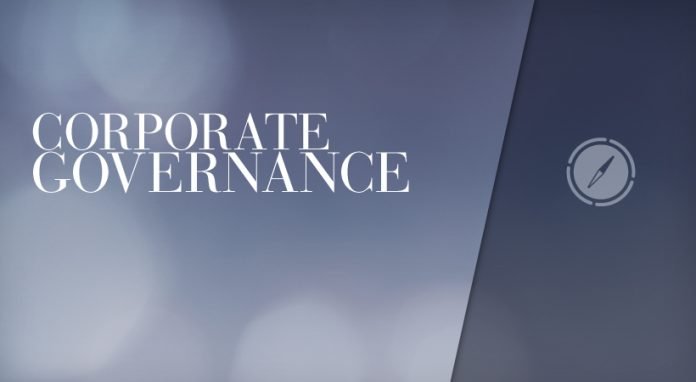How The Companies Are Directed And Controlled By The Corporate Governance
The term ‘Corporate Governance’ refers to the set of mechanisms which is being used in the relationships between shareholders which is further being used to ascertain and monitor the strategic decisions and performance of the organization.
Governance also refers to a means for creating order between the firms’ owners and the top level managers. Therefore, corporate governance symbolizes the company’s values. In the case of modern corporations, the main aim of the corporate governance is to assure and fulfill the interests of top level managers who are being associated with the interests of the shareholders.
Various Participants in Corporate Governance

The Shareholders
The Management
The Board of Directors
It is quite clear about the way the corporations succeed or fail, managerial motives are associated with the interests of the shareholders, elected representatives and the board of directors. Effective and sound corporate governance plays a key role especially for institutions with those proper investment decisions. The corporate premium highlights and shows the price of the securities which any company is practicing. Thus, there exists a strong and powerful correlation between sound corporate governance and superior financial performance.
Internal Governance Mechanisms
Internal governance mechanisms are of three forms which help in managing and controlling managerial decisions as follows,
Ownership concentration
Board of Directors
Executive Compensation
Ownership concentration
Ownership concentration refers to a large number of stock owned by large-block shareholders who hold at least five percent of the corporations’ issued shares. In fact, ownership concentration has gained significant interest due to the fact that the large, block shareholders are highly active in their demands and the corporations follow effective governance mechanisms to monitor the managerial decisions. According to the research studies, ownership concentration is related with bottom levels of firm’s product diversification. Therefore, the higher the degree of ownership concentration, the greater will be the probability of maximizing the share holder’s value.
Institutional owners are those whose financial institutions govern and controls the positions of large-block shareholders. Examples of institutional owners are, stock mutual funds and pension funds which account more than fifty percent of the stock and even, sometimes around fifty-six percent of the stock. The pension funds hold over nearly one-half of the corporate equity. The percentage of ownership held by the investors and the institutional owners greatly influences the firm’s strategic choices and the overall strategic decisions. Thus, it is observed that ownership of most of the modern corporations is being shifted presently in the hands of institutional owners rather than the individual shareholders.
Board of Directors
Shareholders elect few members as the board of directors who monitors and controls the senior level managers and assures that the activities of the corporation are being carried out and performed in an efficient manner where it becomes easier to optimize the share holder’s wealth and also the firm’s profit. The board of directors refers to the group of elected individuals by the shareholders, who acts on behalf of owner’s interests by controlling the top level management. Therefore, this board is entitled to govern and control the organizational affairs, punish or reward managers and protect share holder’s rights and interests.
There have been many great advances in Governance, Risk Management and Compliance software in recent years to help the board of directors automate certain tracking metrics to avoid wasting time during their meetings.
The Board of Directors is basically being divided into three different groups as follows,
Insiders
Insiders include CEO and other top level managers. Insiders are the major providers of the information related to day to day operations of the company.
Related outsiders
Related outsiders are the individuals who have a certain relationship with the firm but are not involved in the day to day operations of the firm.
Outsiders
Outsiders are those individuals who are not a part of the company and do not carry out the day to day operations and other relationships.
Executive Compensation
Another type of governance mechanism is the executive compensation that tries to align the interest of the manager’s salaries and bonuses.
However, effective and successful utilization of this governance mechanism is quite challenging for those firms who introduced the international strategies.
Executive compensation may result in complicated issue in the case of long-term incentive compensation due to different reasons. Even though, incentive compensation is an important part of many executives pay. It also enhances the firm’s value with respect to the share holder’s expectations. Thus, the greater the emphasis on the inventive compensation the greater will be the long-term risk borne by the top level managers. As a consequence, corporations should over compensate managers using long-term incentives.

External governance mechanisms
External governance mechanisms can be different types such as the market for government regulatory bodies, corporate control, auditors, media, banks, analysts, and public activities.
Government regulatory bodies
Depending on the nature and type of the industry the degree of regulation varies. But all most all the corporations are subjected to government regulations. Based on the type of industry, some are subjected to greater regulation. Utilities, banks, and pharmaceuticals are subjected to higher regulation because of their significance. When compared to the private companies public companies are subjected to more regulations because these companies have to disclose financial information to the bodies like SEBI, Securities, and Exchange Commission.
Corporate control
External governance comes into the picture when the internal governance fails. An effective performance by the market for corporate control assures that those managers who were ineffective or act opportunistically are being controlled and monitored in an effective manner.
Auditors
Managers may or may not disclose the correct information, so that the information may not be reliable. Hence all the accounting statements need to be analyzed and audited by the external auditors. They are certified professionals and verify all the accounts and then certifies it as an accurate and reliable statement.




